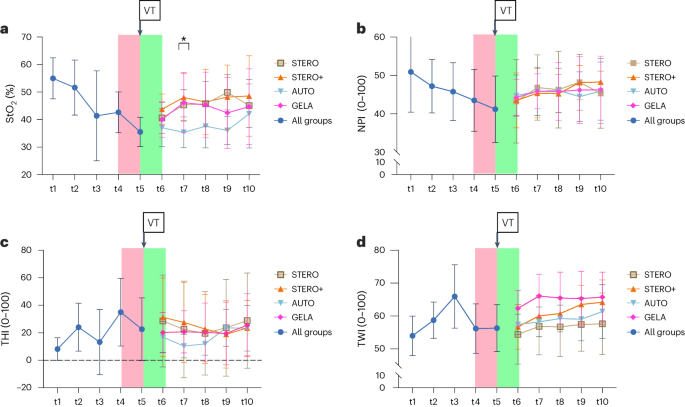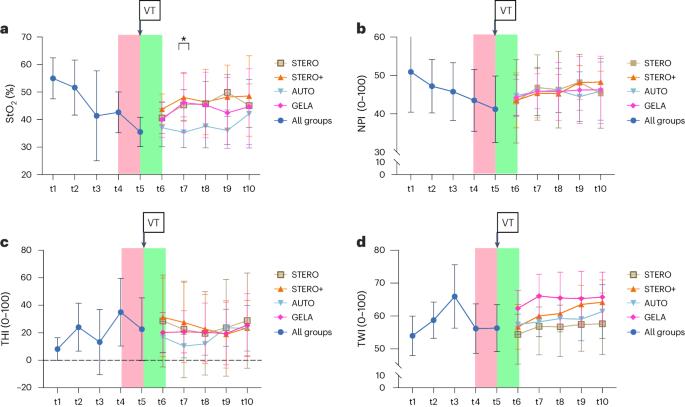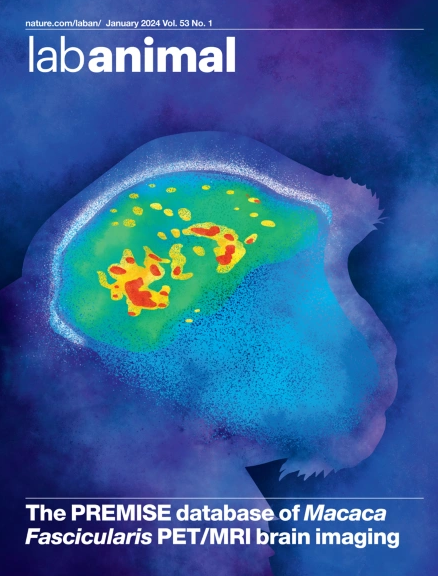在一项大型动物模型研究中,容量管理对游离皮瓣灌注和新陈代谢的影响
IF 5.9
3区 农林科学
Q1 VETERINARY SCIENCES
引用次数: 0
摘要
游离皮瓣失败是一个沉重的临床负担。术中容量管理的作用仍存在争议,缺乏有效的研究。在此,我们利用大型动物模型研究了容量管理对游离皮瓣灌注和新陈代谢的影响。我们在 31 头德国家猪身上进行了肌皮腓肠肌瓣的自体转移,并进行了动脉吻合和腱索静脉导管取血。皮瓣再灌注后,诱导失血性休克并维持 30 分钟,随后使用晶体液、晶体液和儿茶酚胺、自体输血或胶体溶液稳定循环。使用高光谱成像技术定期评估皮瓣灌注和氧合情况。通过定期血气分析评估皮瓣代谢。高光谱成像显示,在任何时间点,测试组之间浅层或深层组织的氧饱和度、组织血红蛋白或组织含水量均无差异。血气分析表明,接受晶体液和儿茶酚胺治疗组的乳酸水平在循环稳定后和稳定后 2 小时内都明显升高。我们的结论是,在失血性休克中,容量管理会影响游离皮瓣的酸碱平衡。含去甲肾上腺素的晶体液会增加乳酸水平,但对皮瓣灌注的短期影响似乎微乎其微,这表明血管加压剂并非有害。本文章由计算机程序翻译,如有差异,请以英文原文为准。


Effects of volume management on free flap perfusion and metabolism in a large animal model study
Free flap failure represents a substantial clinical burden. The role of intraoperative volume management remains controversial, with valid studies lacking. Here, using a large animal model, we investigated the influence of volume management on free flap perfusion and metabolism. Autotransfer of a musculocutaneous gracilis flap was performed on 31 German domestic pigs, with arterial anastomosis and catheterization of the pedicle vein for sequential blood sampling. Flap reperfusion was followed by induction of a hemorrhagic shock with maintenance for 30 min and subsequent circulation stabilization with crystalloid solution, crystalloid solution and catecholamine, autotransfusion or colloidal solution. Flap perfusion and oxygenation were periodically assessed using hyperspectral imaging. Flap metabolism was assessed via periodic blood gas analyses. Hyperspectral imaging revealed no difference in either superficial or deep tissue oxygen saturation, tissue hemoglobin or tissue water content between the test groups at any time point. Blood gas analyses showed that lactate levels were significantly increased in the group that received crystalloid solution and catecholamine, after circulatory stabilization and up to 2 h after. We conclude that, in hemorrhagic shock, volume management impacts acid–base balance in free flaps. Crystalloid solutions with norepinephrine increase lactate levels, yet short-term effects on flap perfusion seem minimal, suggesting that vasopressors are not detrimental. Free flap is widely used in head and neck reconstructive surgery, but fluid management of surgical patients remains controversial. Here, Thiem et al. used a pig model to monitor the effects of volume management on free flap perfusion and metabolism.
求助全文
通过发布文献求助,成功后即可免费获取论文全文。
去求助
来源期刊

Lab Animal
农林科学-兽医学
CiteScore
0.60
自引率
2.90%
发文量
181
审稿时长
>36 weeks
期刊介绍:
LabAnimal is a Nature Research journal dedicated to in vivo science and technology that improves our basic understanding and use of model organisms of human health and disease. In addition to basic research, methods and technologies, LabAnimal also covers important news, business and regulatory matters that impact the development and application of model organisms for preclinical research.
LabAnimal's focus is on innovative in vivo methods, research and technology covering a wide range of model organisms. Our broad scope ensures that the work we publish reaches the widest possible audience. LabAnimal provides a rigorous and fair peer review of manuscripts, high standards for copyediting and production, and efficient publication.
 求助内容:
求助内容: 应助结果提醒方式:
应助结果提醒方式:


